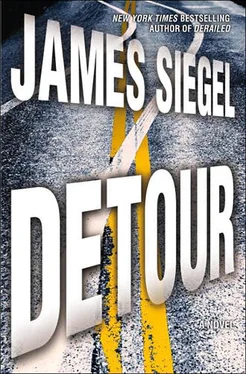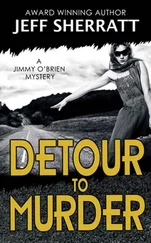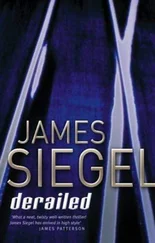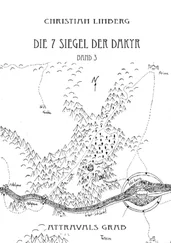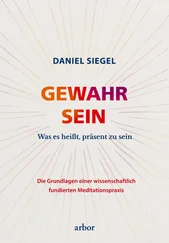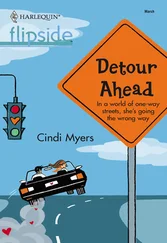When Galina did get home, when she casually pressed the button on her answering machine and heard her daughter’s clearly terrified voice, she knew it was already too late.
She buried her panic, did what you’re supposed to do when someone calls you. Call back. Claudia’s uncle—the one she’d been staying with for the last month and a half—answered the phone. He didn’t know where she was, he said. Her or the baby. They must’ve gone for a walk.
Someone saw me at the market. That’s what Claudia had whispered into the phone.
She hadn’t waited for her uncle to return home. Out of self-preservation, out of the desire to protect him, she’d gathered up Sofía and run. Later they’d notice some of her things were missing. Not everything; some of Sofía’s clothes and a small picture of the three of them—grandmother, mother, and baby—she’d managed to tote from one hiding place to another.
Claudia had been spotted in the market, and in a near panic she’d called the one person she trusted most in the world.
Galina wasn’t there. She was out shopping.
Claudia had decided she needed to leave then.
After that, who knows?
After that, you’re left with the clinical police reports and a few eyewitnesses who may or may not have seen anything.
Mostly, you’re left with the body.
She was found on the edge of a barrio.
No one was aware it was a she at first. It was an amalgam of flesh and bone, a jigsaw puzzle that took two police pathologists a solid week to piece together before proclaiming it was her . They knew this much. What had been done to her had taken time and patience. There were traces of rope found around her neck. What once was her neck. There were acid burns everywhere. Every inch of her skin. That’s what the police report said. It was supposed to be kept confidential to spare the family, but it was leaked to a newspaper, which printed it as a small item on the weather page. She’d been burned and mutilated. The report didn’t mention if she was alive and conscious during the ordeal.
It didn’t tell Galina who did it either.
It was another unsolved homicide. To be added to the thousands of other unsolved murders in Colombia.
Had Riojas been there in person?
Had he gotten another one of those calls in the middle of a dinner, coolly whispered in his wife’s ear that he had urgent business to attend to? Had he smiled, rolled up his sleeves, walked in on a bound and terrified Claudia, just like he had four years before? It’s impossible to say.
But Galina saw him there.
When she pictured it, as she did over and over and over again, dulled by alcohol, pumped full of whatever pills she’d managed to wheedle from yet another doctor, Riojas was always there. Wielding the knife. Spilling the acid. Choking the life out of her daughter.
He was always there.
WHEN GALINA FINISHED, JOANNA COULDN’T THINK OF ANYTHING TO say. She sat in stunned silence.
It wasn’t until Galina stood up to leave, till she whispered good-bye and turned to the door, that Joanna realized there was a missing piece of the story.
“Sofía?” Joanna said, hesitant to ask because she was afraid to hear Galina’s answer. “What happened to your granddaughter?”
Galina stopped just before the door. “Dead,” she said without turning around. “Like her mother.”
There were other questions—how had their deaths led Galina to FARC? But Joanna didn’t ask. If she thought about it hard enough, she could probably fill in the blanks herself.
After Galina left, Joanna lay on the floor and curled her body around her daughter, as if to protect her from fatal harm.
THIRTY-SEVEN
From the outside it looked like a taxi garage. Dial-a-Taxi, it said in big yellow block letters.
Apparently not.
For one thing there were no taxis inside.
There were no taxi drivers.
There were dark hallways that seemed to lead nowhere. There was a big room with faint oil stains on the floor. Maybe it had been a taxi garage once, but not now.
This was where the bird-watcher took him.
He’d been escorted down his apartment stairway with the bird-watcher’s hand on his arm, then bundled into a car with gray-tinted windows and driven outside the city by a faceless chauffeur. Queens, Paul thought—that vast unknown that Manhattanites traversed on their way to the East End, only stopping for gas or the occasional Mets game.
“You don’t watch birds,” Paul said to him sometime during the ride.
“No,” the man said. “I watch other things.”
IT TOOK PAUL A WHILE TO UNDERSTAND THAT HE WAS BEING interrogated.
They were asking questions and it seemed as if he was answering them. Yes, there were two of them. After a while he noticed that one of the men always stayed out of sight and directly behind him—the two of them switching off like beach-volleyball players rotating between net and serve. He wondered if this was a tactic meant to scare him. One of them hiding behind him, doing God knows what. If so, he felt like telling them they needn’t bother—he was scared enough already.
When they got to the garage, the bird-watcher had slipped on a blue vinyl jacket. No, slipped on was too casual a description. He cloaked himself in it, like a Masters champion displaying the green jacket.
This jacket had DEA prominently displayed in white letters, each half a foot tall. Paul imagined that was so there’d be no mistaking who was bursting through the front door of some walk-up in Spanish Harlem. Apparently, the bird-watcher hadn’t felt the need to announce his affiliation when he’d burst into Paul’s Upper West Side co-op.
“Know what this spells, Paul?” the bird-watcher asked him.
“Yes,” Paul said. “Drug Enforcement Agency.”
“Wrong.”
“D . . . E . . .”
“Wrong.”
“I thought DEA is—”
“Wrong. This jacket spells Paul is fucked. ”
Yes, Paul thought, okay. “Do I get to call a—?”
“You know why it spells that, Paul?” the bird-watcher interrupted him. “Can you guess?”
“No. Yes.”
“ No. Yes. Which is it?”
“Excuse me. Can I call a lawyer?”
“Sure you can call a lawyer. How about Miles Goldstein ? He’s a lawyer, isn’t he?”
Paul didn’t answer. The bird-watcher had shed his glasses, and with them any suggestion he was involved in the gentle and scholarly pursuit of ornithology.
I watch other things.
“Paul, I asked you a question. Perhaps you’re not familiar with the dynamics of DEA interrogation. That’s okay. I’ll explain. We ask. You answer. It’s pretty simple. So what do you say—we clear on this?”
Paul nodded.
“Great. Terrific. So what did I ask you before? Hey, Tom, you remember what I asked Paul?” He was addressing the man lurking behind him. Paul turned to peek, but immediately felt the man’s arm on his shoulder forcefully turning him back.
“You asked him if Miles Goldstein was a lawyer,” Tom said.
“Yes,” Paul answered. “He’s a lawyer.”
“Wrong,” the bird-watcher said.
“He’s an adoption—”
“Wrong.”
“We went to him because—”
“Wrong. Miles Goldstein is not a lawyer.”
Paul shrugged, stuttered—he felt like the dumb and picked-on student unable to divine the right answer.
“Miles Goldstein was a lawyer. Was. His brains are splattered all over his home office. But you know that, Paul. Do we have to review the dynamics of DEA interrogation again?”
“No.”
“No? Okay, Miles Goldstein was a lawyer. What else was Miles Goldstein? Besides a cocksucking Jew bastard. You think Jews have infiltrated the corridors of power, Paul? Do you think they’ve co-opted our foreign policy? Hijacked the banks, corrupted our corporations, polluted our bloodline? You think that, Paul?”
Читать дальше
